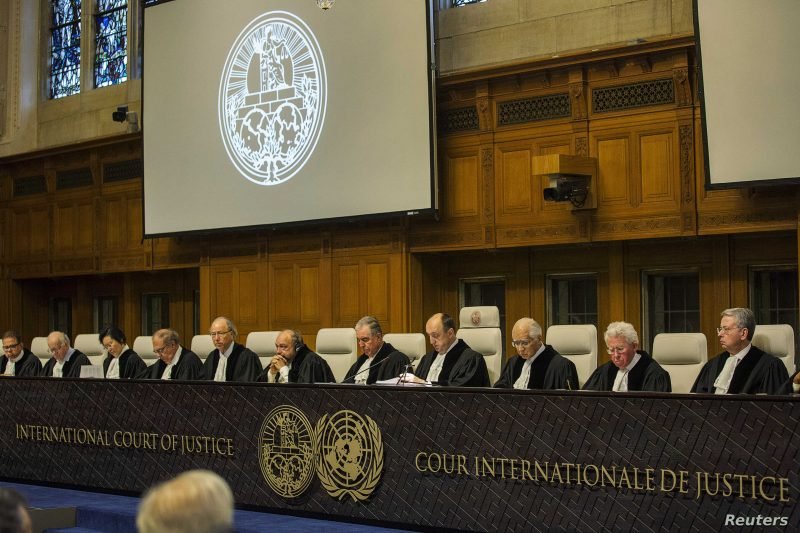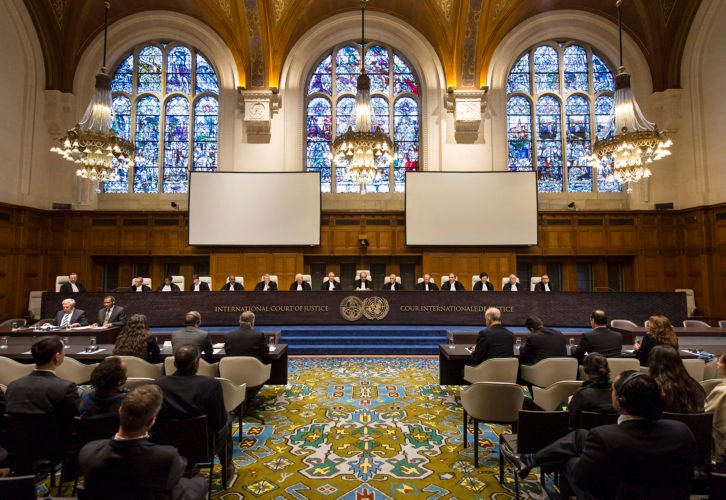Transformation of the International Court of Justice (ICJ)

Introduction
Recent events in contemporary times have shown us how much or many organizations are made for world peace and security, human rights and developments, Individual and society rights are being violated. The key issue here is that no action is taken against the states conducting such atrocities and are held responsible or punished. One exemplary example is the 20-year-long conflict between Afghanistan and the USA. This conflict showed at the end of 20 years of war, peace was not attained, and security of rights was not accomplished. This questions the relevance of these world organizations. Here we will understand the relevance of one such organization and discuss the changes that ICJ needs and the various measures of reform.
The ICJ is the principal judicial organ of the UN, established in 1945 replacing the permanent court of international justice. The composition of ICJ is 15 judges in total, 5 judges elected every 3 years each judge is elected for a 9 years term. All UN members, the 193 countries are parties to the ICJ. The Jurisdiction of the ICJ comes threefold: Contentious jurisdiction, signing of a protocol, binding in nature; Incidental jurisdiction, which allows the court to pass interim orders, binding on both parties; Advisory jurisdiction, organs of the UN can see advice from the ICJ, have a legal opinion, non-binding. Judgments of the ICJ, the UN charter says “all judgements passed by the ICJ shall be enforced by the UNSC.
Reforms in the ICJ
In my view, the first attribute of the ICJ in need of urgent reform is its judgment of ICJ. As mentioned in the UN Charter that all judgements shall be enforced by the UNSC, but they are subject to VETO. For example in the case of Nicaragua vs the United States, in 1984 Nicaragua made an appeal in front of the ICJ against a dispute relating to military and paramilitary activities in and against Nicaragua by the US[1]. In 1986, the ICJ passed an order against the US saying that, “had violated the obligations imposed by customary international law not to intervene in the affairs of another State, not to use force against another State, not to infringe the sovereignty of another State, and not to interrupt peaceful maritime commerce.”[2] However, after the judgment was passed in favor of Nicaragua, the UNSC was asked to enforce the decision but the USA used its VETO in the UNSC and the judgment was never enforced. This undermined the ICJ’s authority, creating a loophole in the system. This case shows that the ICJ is irrelevant in the case of P5 nations or powerful states. In another instance in the Khulbhushan Jadhav case, India scored a stay on the execution before the ICJ[3]. However, legal analysts feared that China might use its VETO to stop the enforcement of the judgment. The above references reflect that VETO in the judgment enforcement of the ICJ by the UNSC has been used as a tool by the members to cherish their own political agenda. Instead, the enforcement of the judgment should be done by the ICJ itself; this would not lead to countries or their allies using VETO as a scapegoat for legal matters. Furthermore in the case of judgements bias plays a huge role.

The ICJ judgements are often characterized as political rather than integral. Ironically The ICJ judgements are “Bad law, good politics”. One such example where politics played a greater role than law is the Kosovo judgment in 2010. ICJ said, “the declaration of independence of Kosovo adopted on 17 February 2008 did not violate international law”. However territorial sovereignty and integrity of states are granted by the UN Charter. In the Kosovo judgment this statement of the UN Charter was ignored, many analysts say that this was done due to the bias and political nature of the ICJ judges. Another case is USA vs Iran, where the US diplomats were held, hostages. Even though the ICJ passed an order against Iran, it still said that Iranian states were not involved. This approach of the ICJ is criticized by many, some argue that ICJ tries to be diplomatic in all its decisions, is scared of big powers, tries to be political more than legal, and lacks credibility. An immediate measure in order to solve this issue is having diversity in the legal system of the ICJ. Currently, the ICJ works primarily like the western legal system, though this ICJ has lost credibility in the non-western world. To regain credibility the ICJ should work towards collective rights rather than individual rights. To be seen as less biased and more inclusive the structure in which the judges are chosen should be modified. Like each region is given some seats to have representation in the ICJ, the allocation of the seats should be changed. For eg, currently, the African region has 2 seats whereas the western world has 5, in order to bring in the trust of African countries their representation has to be increased.
Conclusion
Finally, in my opinion, ICJ would work smoothly and efficiently if ICJ becomes an independent organ. The jurisdiction of the ICJ does not fall with any other organs of the UN. It should function like the judiciary system of different states. The doctrine of separation of powers should also be followed in the UN system, where the ICJ are separated watertight from the other UN organs. This will ensure that ICJ becomes relevant, unbiased and apolitical.
[1] ICJ Nicaragua vs USA
[2] ICJ, Nicaragua vs USA case
[3] ICJ, Jadhav (India v. Pakistan)


















